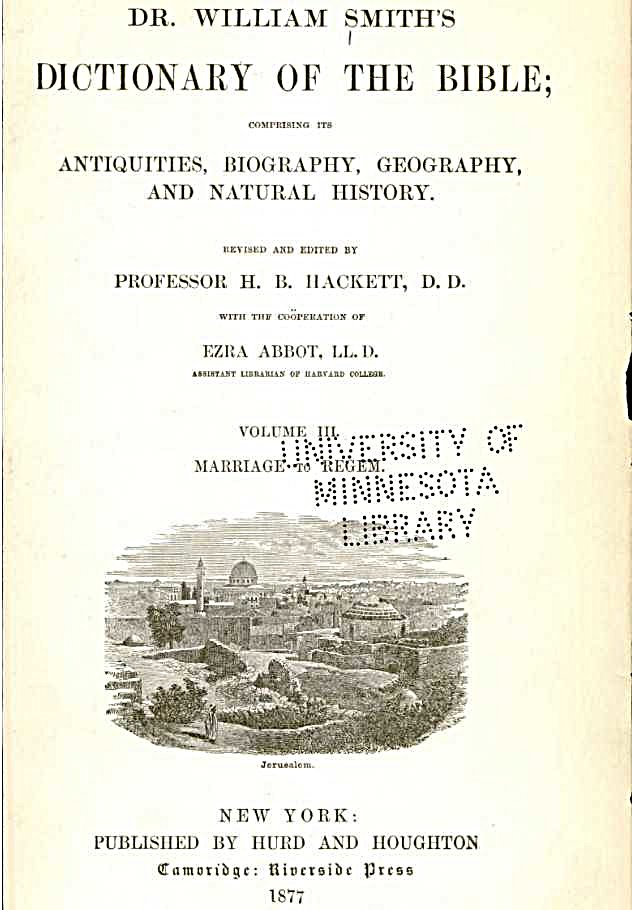|
Other Archaeological Sites / The Neolithic of the Levant (500 Page Book Online) Palestine in Dr. William Smith's Dictionary of the Bible VOLUME III (1871) Pages 2284-2323 PALESTINA and PALESTINE: These two forms occur in the Authorized Version but four times in all. In each case the Hebrew (פְּלָֽשֶׁת) is Pelesheth (p̄ə·le·eṯ) -- a word rendered " Philistia " or " Philistines ". The apparent ambiguity in the different renderings of the King James Version is in reality no ambiguity at all, for at the date of that translation "Palestine" was synonymous with "Philistia" (See Also 1). Palestine then in the King James Version really means nothing but Philistia. The original Hebrew word Pelesheth signified merely the long and broad strip of maritime plain inhabited by their encroaching neighbors. We shall see that they never applied the name to the whole country. An inscription of Iva-lush, king of Assyria (probably the Pul of Scripture), as deciphered by Sir H. Rawlinson, names "Palaztu on the Western Sea" and distinguishes it from Tyre -- Damascus -- Samaria and Edom (Rawlinson --- Herod). In the same restricted sense it was probably employed if employed at all by the ancient Egyptians in whose records at Karnak the Pulusatu has been deciphered in close connection with that of the Shairutana or Sharu; possibly the Sidonians or Syrians. Nor does it appear that at first it signified more to the Greeks. As lying next the sea, and as being also the high-road from Egypt to Phoenicia and the richer regions north of it, the Philistine plain became sooner known to the western world than the country further inland, and was called by them Syria Palaestina Philistine Syria. This name is first found in Herodotus and there can be little doubt that on each occasion he is speaking of the coast and the coast only. From thence it was gradually extended to the country further inland, till in the Roman and later Greek authors, both heathen and Christian, it becomes the usual appellation for the whole country of the Jews, both west and east of Jordan. Nor was its use confined to heathen writers : it even obtained among the Jews themselves. Josephus generally uses the name for the country and nation of the Philistines but on one or two occasions he employs it in the wider sense. It is even found in such thoroughly Jewish works as the Talmudic treatises Bereshith Rabba and Echa Rabbathi; and it is worthy of notice how much the feeling of the nation must have degenerated before they could apply to the Promised Land the name of its bitterest enemies the "uncircumcised Philistines"
|
